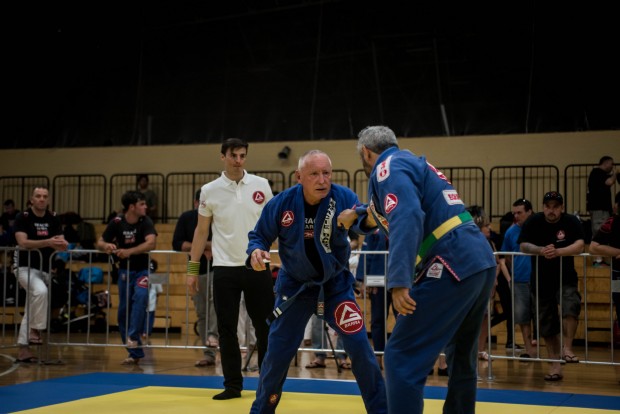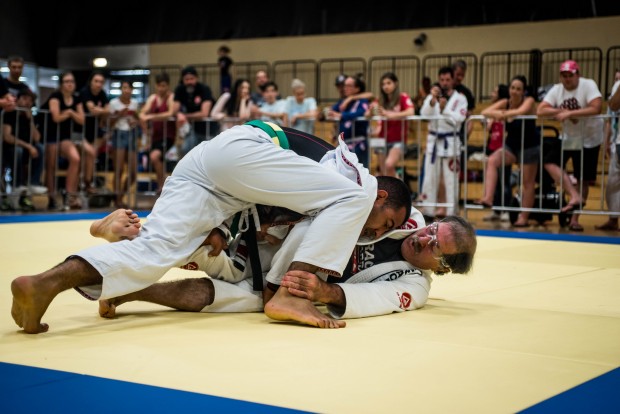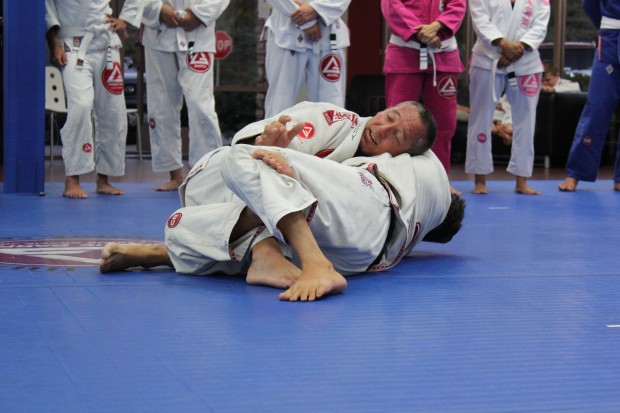Bjj For The Over 40 Student
A very common question on internet message boards devoted to bjj is “I’m 40-something years of age…is it too late for me to start bjj?” The short answer is “No!”
In combat sports, the competitive athletes have a narrow window where their physical powers are at their peak before age and accumulated injuries begin to slow them down. There are successful stories of 50+ aged athletes who start bjj and enjoy learning jiu-jitsu and getting fit when many others consider their athletic career over.
The over 40 athlete does however, have some special considerations in their training focus.
Here are 5 tips for the over 40 bjj student (and all of them fit together symbiotically!):
1) Recovery
This is the biggest difference for older athletes: the body is no longer as quick to recover from heavy training. A sprained ankle that took 1 week to heal at age 21 now mangers after a month. How does the 40+ bjj guy can maximize their recovery from training sessions?
- adequate sleep
- balance the demands of their other physical activities with jiu-jitsu classes
- sometimes taking a “drilling day” instead of your regular rounds of rolling
- proper nutrition
- pacing your training
Remember, jiu-jitsu is a marathon, not a sprint!
2) Injury prevention
Sure, we all want the highest performance and be as competitive as possible. The bigger concern for the older athlete is injury prevention. Nothing will set back your progress as quickly as training injury.
You can’t get better if you are not on the mat due to injury!
Select your training partners carefully, a recreational 45 year old bjj student may not be the best match up for a pro MMA fighter. They have different goals and capacities. Often in Brazil, the instructor will properly match students up for rolls according to level and age.
“An ounce of prevention equals a pound of cure” the old saying goes. Prevent injuries from happening in the first place.”
3) Nutrition
When one is 21 years old, a younger athlete can get away with frequent trips to McDonald’s. The metabolism is faster and burns up those extra calories. After 40 years of age, perhaps with a desk job, excess weight can start to accumulate if one is careless with diet.
But more than just extra bodyweight, getting the proper nutrition is VITAL to your ability to:
- have maximum energy available to fuel your training sessions;
- get all of the nutrients you need to maximize your recovery between training sessions.
Sore joints plague many older bjj practitioners, and a proper diet can go a long way to mitigate those aches! An anti-inflammatory diet can dramatically reduce joint pain.
read also: 5 Ways to Eat Better
4) Fitness
Whole body workouts that emphasize compound exercises and functional strength are the way to go.
Bodybuilding style workouts with multiple sets and isolation exercises (ex. concentration curls) are not the most effective way to go for the bjj athlete.
In addition to being strong enough to execute your techniques and be competitive against younger athletes, a strong body is less injury prone than a weak body. For many older athletes, the greater emphasis is on staying healthy enough to be on the mat as opposed to being as strong as possible.
For the bjj athlete 2 x week basic strength training (try kettlebells for a full body workout) and cardio vascular conditioning as endurance is more important in bjj than pure power.
read also: 5 Great Methods of Physical Conditioning for BJJ
5) Rolling
Grandmaster Helio Gracie emphasized defence first in his approach to jiu-jitsu – as should the 40+ bjj student. “Survive, then win!”
As opposed to all out offence, the older athlete must emphasize defending themselves in tough positions and using technique timing and all of the tricks of the “wily veteran” to overcome younger, faster, stronger opponents.
My favourite quote by Master Carlos Gracie Jr. talks about using a style of jiu-jitsu that you can successfully use when you are over 40 years of age:
“I don’t get this obsession with all of the acrobatic guards. They are efficient, sure. But they’re fleeting. Your body has difficulty understanding them for too long. I say this from my own experience. The lumbar region, for example, as strong as it may be, will never be armoured against the passage of time. Jiu-jitsu is for your whole lifetime, and by that line of reasoning you can rest assured that the basic techniques like the closed guard or this open guard I enjoy doing, will never abandon us. At 70 we’ll still be capable of performing them with plenty of mobility. That can’t be said of the tornado guard or the berimbolo.” – Master Carlos Gracie Jr.
A Question for over 40 bjj’ers: What are your tips for training after 40?
read also: 5 Tips for BJJ Over 35
Credits: Mark Mullen
Gracie Barra Black belt based in Asia
Twitter: @MarkMullenBJJ



